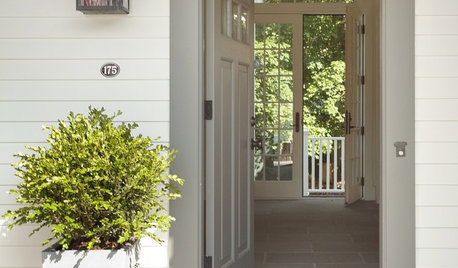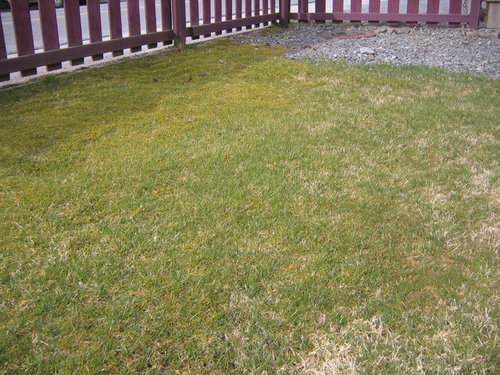improve yard health
sgull
10 years ago
Related Stories

HOME TECHGadgets Help You Watch Your Health at Home
See the crop of new devices that can monitor your body's vital signs and environment for health, fitness and fun
Full Story
DECORATING GUIDESImproving a Rental: Great Ideas for the Short and Long Haul
Don't settle for bland or blech just because you rent. Make your home feel more like you with these improvements from minor to major
Full Story
FEEL-GOOD HOMEHow to Treat Your Home to a January Health Kick
Your house is an extension of you, so give it a reboot this month to ensure that it’s fit, happy and ready for the year ahead
Full Story
HEALTHY HOMEEasy Green: Weekend Detox for Your Home
A few small changes to your home over the weekend can help improve your health (and your cash flow) every day
Full Story
FALL GARDENING5 Ways to Put Fall Leaves to Work in Your Garden
Improve your soil and yard the organic way with a valuable garden booster that grows on trees
Full Story
DECORATING GUIDESImprove Your Style Fortune With Lucky Bamboo
Serve this versatile plant straight up or with a twist for auspicious living decor that thrives without soil
Full Story
LIFEImprove Your Love Life With a Romance-Ready Bedroom
Frank talk alert: Intimacy and your bedroom setup go hand in hand, says a clinical sexologist. Here's her advice for an alluring design
Full Story
GREAT HOME PROJECTSUpgrade Your Front Yard for Curb Appeal and More
New project for a new year: Revamp lackluster landscaping for resale value, water savings and everyday enjoyment
Full Story
KITCHEN DESIGNEcofriendly Kitchen: Healthier Kitchen Cabinets
Earth-friendly kitchen cabinet materials and finishes offer a host of health benefits for you and the planet. Here's a rundown
Full Story
GREAT HOME PROJECTSHow to Get a Built-In Outdoor Grill
Put fresh-air grilling on the menu with a built-in setup that suits your patio or yard
Full Story







dchall_san_antonio
sgullOriginal Author
Related Professionals
Allen Landscape Architects & Landscape Designers · Benbrook Landscape Architects & Landscape Designers · Erie Landscape Architects & Landscape Designers · Hyattsville Landscape Architects & Landscape Designers · Quincy Landscape Architects & Landscape Designers · Southfield Landscape Architects & Landscape Designers · Pottstown Landscape Contractors · Ashburn Landscape Contractors · Maywood Landscape Contractors · New Berlin Landscape Contractors · Pompano Beach Landscape Contractors · San Rafael Landscape Contractors · Irvington Landscape Contractors · Quartz Hill Landscape Contractors · Dickinson Swimming Pool Buildersdchall_san_antonio